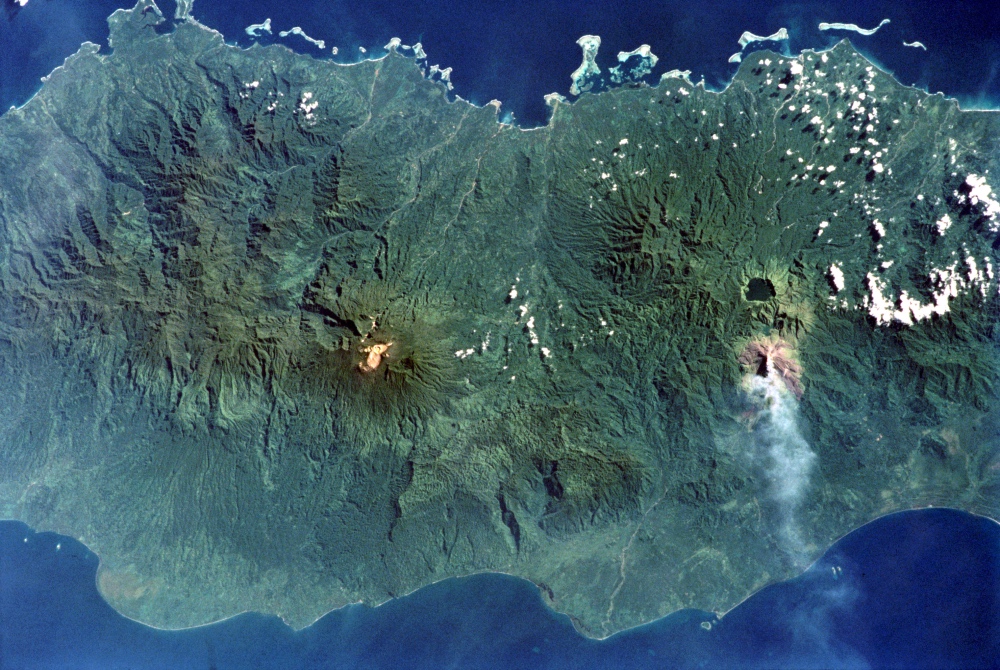Buka, Papua New Guinea
Reuters
Twenty years after combatants snapped arrows to signal the end of hostilities in the Papua New Guinea region of Bougainville, voters will on Saturday cast ballots in a long-awaited independence referendum.
Prominent separatists say the independence movement cannot be stopped.
“Bougainville is never turning back because we paid a very high price for our independence, losing 20,000 lives during the conflict,” Martin Miriori, who led an interim government in Bougainville in the latter stages of the war, told Reuters.
“All Bougainvilleans are ready and very excited that their day, which is only once in a lifetime, is fast approaching, and we are ready to vote…for independence.”

The northern part of the mountainous Bougainville Island featuring the Emperor Range in 2001. PICTURE: NASA
Just over 200,000 people are registered to vote in the non-binding referendum, which runs from 23rd November to 7th December, at polling stations across the South Pacific archipelago, as well as in Australia and the Solomon Islands.
Voters are expected to overwhelmingly back independence, according to Australia’s Lowy Institute think-tank, although they could opt for a second option on the ballot, for greater autonomy rather than outright independence.
The result of the vote, which is being overseen by former Irish Prime Minister Bertie Ahern, will go before the PNG parliament in Port Moresby and be subject to negotiation.
The referendum terms were agreed as part of the peace process in the aftermath of a decade-long war, ending in 1998, between Bougainville’s rebel fighters and PNG forces.
The fighting was triggered by disputes over the now shuttered Panguna gold and copper mine, then run by a forerunner of giant mining company Rio Tinto, with anger over land royalties and the pollution of the rivers from mining at the core of the dispute.
“The goal was to have a referendum as a means of restoring total peace,” said Sam Akoitai, a Bougainville MP who fought alongside PNG security forces during the conflict.
He said subsequent negotiations with the national government would likely focus on prospects for Bougainville to sustain itself economically.
Bougainville was once the economic engine of PNG, generating almost half its gross domestic product through the Panguna mine alone, but it now relies on significant funding from Port Moresby.
Attempts to restart the Panguna mine have been unsuccessful amid competing mine claims and divisions among landowners.
The vote comes at a pivotal time in the South Pacific, with a growing competition for influence between the United States and China.
Two island nations have recently severed ties with Taiwan, to align with China.
The United States and its Pacific allies have, however, plugged a funding gap that could have seen the referendum called off in a move that sidelined China from the process, two sources told Reuters.
Bougainville campaigners were asked to stop canvassing for votes on Thursday and Friday to allow people to consider their choices and reflect on their future, chief referendum officer Mauricio Claudio said in a statement.
“Now is the time to reflect, whether it be in silence, in prayer or in quiet discussions with one another,” said Claudio.






